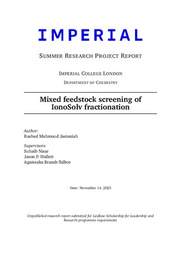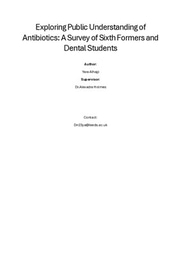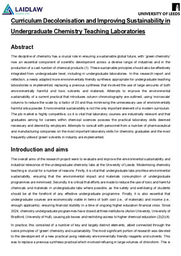Queer Lives: Narrations of Work Abroad (June 13)

Author’s Note: Apologies, everyone, for the long delay on updates. The last several days have been complex from my side. A close family member passed away a few days ago after a tough and unexpected battle with cancer, which is something myself and my family are still processing. I was also quite sick around the same time with a bad stomach flu – never ideal when working abroad. All things considered, I decided it was best to take a break from posting for a few days to give myself and those around me some time to process and rest. I’ll be posting daily again now, picking up from my last date. Enjoy.
The morning hours in Mumbai stretch out delightfully: a cat yawning in the sun, nimble shoulders pressed into grey stone. When I wake up, I only really have an hour before I leave for work, but that hour feels like hundreds, drawn out in the early heat. I don’t typically eat breakfast back home, but here it’s a habit; clothes on and hair brushed, I settle at the table, picking at the tough skin of a lychee. It’s not raining today, so the windows are open, and a cool breeze washes over us. I want to close my eyes to it, let the remaining minutes fill the day. My hands stain a slow red as I move to the bowl of pomegranate, sifting the seeds through my fingers.
A long day lies ahead of me – for the first time, I’m heading to the main Humsafar office in Vakola, which is about a ten-minute drive from the office I’ve been working at. Every Friday, the Vakola office hosts a community workshop, anything from dance sessions to legal rights presentations. As part of my time here, I’m set to run the workshop two weeks from now, on June 27th – my swan song for my time in Mumbai. Given this, my supervisor has recommended I head over to Vakola today in the evening to watch the day’s event, chat to the staff there, and hopefully get a broad sense for what I need to prepare in the upcoming weeks.
First, though, I’m headed to Kalina as normal to continue work on the sensitisation programmes and the outreach survey. It’s blissfully dry outside, so I reach work quickly and smoothly – or at least however smoothly traffic can move here. Every day, I am truly and completely amazed by the sheer physical capabilities of rickshaws: they fit into spaces that seem fully impossible, nudging behind cargo lorries and curving around road dividers without a scratch to show for it. I’m certain, as we make the final turn in the route, that I’m going to lose an arm with how close we are the neighbouring car, but a few seconds later, we pull ahead, racing ahead of the crowd. My mouth drops. The driver, entirely unfazed, doesn’t seem to notice my astonishment.
Work is straightforward and quick; I spend most of the day writing and re-writing questions for the survey, each time finding something new to add. To be honest, the process has surprised me: I never expected crafting a survey to be so complex or time-consuming. In some ways, I’m reminded of my daily auto journey to and from work. I feel as if I began writing the survey on a one-way lane, driving a car: I had a list of topics and questions that seemed appropriate, all of which addressed the outreach needs on a very clear, first-floor level. Now, I’m manoeuvring an auto through the five-lane streets of Santa Cruz East. Working on this survey has taught me to view outreach and needs evaluation through many different lenses: social, financial, emotional, health-based, familial – and that’s just a few.
Right now, for example, I’m working on a section to evaluate access to updated citizenship documents and identity cards, especially for people assigned female at birth. One of the early and primary forms of abuse in India towards women and transgender individuals is the withholding of citizenship documents, which prevents people from accessing legal aid. It’s important for us, then, to understand what types of documents people have access to and whether these documents are updated to reflect current name and gender identity. Transgender individuals specifically have the option to get transgender identity cards, which offer specific legal protections that people don’t often know about.
I finish my work in the office after a few hours, breaking only briefly for lunch. I check my watch: it’s five – still two and a half hours before I need to be at the evening event. Vakola is close to Kalina, and the smart thing to do would be to stay at the office until I have to leave, but the drone of the air conditioning and the steady white glow of my laptop are slowly putting me to sleep. Somewhat inconveniently, I make the decision to head back home first: I’ll only have an hour there, but to my drowsy brain, it’s worth the journey.
Of course, Mumbai never fails to keep me on my toes – quite literally, in this case. When I leave the office, it’s sunny and scalding hot outside, and the roads are bone-dry, practically sizzling. I climb into an auto, but within seconds of leaving, the skies tear, and the rain falls with what I can only describe as a very personal grudge. Somewhere, sometime, I must have offended the clouds, and this is my punishment: stuck in an open-air vehicle, on three unstable wheels, clutching my backpack to my chest and trying valiantly not to tip out onto the road. My thirty-minute ride takes an hour, and I stagger home drenched and exhausted, collapsing bowlegged onto the couch.
An hour later, my alarm rings. I jolt awake, hair in my eyes and feet pressed into the sideboards as I scramble for my phone. Although I fully believe I could spend another several hours dozing, it’s time to leave for the Friday workshop. The rain has stopped, so it’s a quick ride there, though it takes me several minutes to find the building staircase, which is oddly tucked away into a corner.
The Humsafar offices are on the third floor, so I set off climbing. The first thing I notice is the massive rainbow that stretches along the concrete wall, tracing the handrail in faded streaks of red and yellow and deep indigo. Then, the colours explode: the entrance to the floor is covered in murals added over the years, washing the whole area in light. My favourite is a map of India done in rich blue: every Humsafar office is marked in pink, with name and location. I run my hand over the east coast – there we are, just by the water. Vakola, Mumbai.
I head in tentatively, turning into the first open door. I don’t recognise either of the people sitting there, but I tell them I’m there for the workshop, and they gesture behind them. I duck my head through the grey curtain, and I’m hit straight in the face by blaring Bollywood music, a clapping, roaring crowd, and a young man dancing at the front of the room who, without any effort, has captured the eyes of everyone in the audience. His wrists twist, and the bracelets he’s wearing crash gently against one another; he ducks to the first row, waving and pointing at his friends. The energy is infectious – it’s almost visible, bouncing from person to person as the song comes to its close.
I’ve spent time in various queer space, and in a few Indian spaces as well, and I’m largely comfortable with each aspect of my identity as separate components. I know myself as a queer person, and I know myself as an Indian person – and I’ve been mostly lucky in having family who don't question either side of that. But now, as I stand dumbstruck in the threshold, my eyes glued to the dance, I realise I’ve never been in a space that was both queer and Indian – intentionally brought together. I don’t really know how to describe it. It reminds me of walking along the beach back in university with my friend, just weeks past, when the weather was finally warm enough to brave the ocean chill. We traipsed along, rocks catching in our shoes. It was difficult to walk in the sand: our feet dragged, and every step felt heavy – but it was no easier to walk in the water, with the hem of our pants caught in the current. We had to trace a path down the middle, where the sand was thick with water and salt, dark grains catching our footprints. Here, in the doorway, I feel once again between sand and shore: a meeting point, where I can walk freely.
Throughout the hour, I am constantly welcomed. A man who I have never met offers me a seat, and the lady next to us brings me a plate of food and water. The young dancer who I saw walking in smiles as me as he takes his seat, grinning at my excitement. Everywhere, there is movement: arms flailing, legs tapping, hands upon hands clapping in unison. After the performance, one of the staff grabs my hand and takes me in the office. Presumably, he meant to show me around, but we’re stopped quickly by a tall man, one of the leads at Vakola. I’m here to meet him, and he’s astonishingly kind, showing me into the main room so I can sit for a moment and catch my breath. I even run into one of my interview contacts from last year, and we spend a lovely few moments speaking together.
I wish I could stay longer, but a brief glance out the window shows me that the sun is setting, and I don’t want to try to make my way home in the dark. Bidding everyone a short goodbye, I rush down to the street to find my rickshaw. Now that traffic has ceased and the rain is gone, it’s a short journey back to Bandra; I reach home before Revathi Auntie and Asok Uncle have gone to bed. The persistent tiredness which has clawed at me through the day has not left, so I head inside not long after, falling face-first into bed.
I dream of split lychees, hanging heavy in a tree. I dream of golden bracelets, and paint under my nails. I dream of dancing.





Please sign in
If you are a registered user on Laidlaw Scholars Network, please sign in